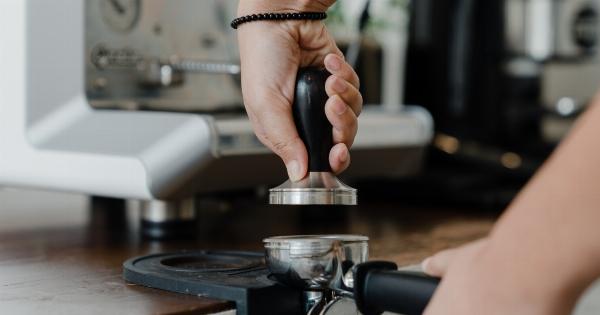During pregnancy, women are often cautious about the foods and beverages they consume to ensure the health and well-being of their baby.
Caffeine, a common component found in coffee, tea, energy drinks, and other beverages, has been a subject of concern among pregnant women. In this article, we will explore the effects of caffeine on pregnancy and provide valuable information to help you make informed decisions.
What is Caffeine?
Caffeine is a natural stimulant that affects the central nervous system. It is known for its ability to increase alertness, reduce fatigue, and improve concentration.
Caffeine is found in varying quantities in different types of drinks and foods, with coffee and tea being the most common sources.
Caffeine and Pregnancy
Many women wonder if it is safe to consume caffeine during pregnancy. While the effects of caffeine on pregnancy have been a topic of study for many years, there is no consensus on a safe caffeine limit.
However, it is generally recommended that pregnant women limit their caffeine intake.
The Effects of Caffeine on Pregnancy
The primary concern with caffeine consumption during pregnancy is its potential effects on the developing fetus.
Some studies suggest that excessive caffeine intake may increase the risk of miscarriage, preterm birth, low birth weight, and developmental delays. However, the results from various studies have been conflicting, making it difficult to establish a conclusive link between caffeine and these adverse outcomes.
It is worth noting that caffeine is a stimulant, and excessive intake can lead to increased heart rate and blood pressure, which can be harmful during pregnancy, especially for individuals with underlying health conditions.
Recommended Caffeine Limit
Due to inconsistent research findings, there is no universally agreed-upon safe caffeine limit for pregnant women. However, many healthcare professionals recommend limiting caffeine intake to 200 milligrams per day during pregnancy.
It is important to note that a serving of caffeine varies widely depending on the source. For example, an 8-ounce cup of coffee typically contains around 95 milligrams of caffeine, while the same amount of tea contains around 47 milligrams.
Energy drinks and sodas may contain even higher levels of caffeine.
To stay within the recommended limit, it is crucial to be mindful of the consumption of various caffeinated beverages and foods throughout the day.
Reading labels and opting for decaffeinated alternatives can help you manage your caffeine intake effectively.
Considerations for Decaffeinated Options
Switching to decaffeinated alternatives is a common approach taken by pregnant women who wish to reduce their caffeine intake. However, it’s important to note that even decaffeinated beverages still contain small amounts of caffeine.
While the levels are significantly lower compared to regular versions, they are not completely devoid of caffeine.
If you choose to consume decaffeinated beverages, ensure that you carefully read labels to understand the caffeine content.
Additionally, some decaffeinated products may undergo chemical processes to remove caffeine, so it is advisable to consult with your healthcare provider to determine which options are best for you.
Effects of Caffeine on Sleep
Caffeine is known to interfere with sleep patterns by reducing the brain’s ability to relax and fall asleep naturally.
A good night’s sleep is crucial during pregnancy as it plays a significant role in the overall health and well-being of both the mother and the baby. Therefore, it is essential to limit caffeine consumption, especially in the evening, to promote better sleep quality.
Other Sources of Caffeine
Caffeine is not only found in beverages but also in various foods and medications. Chocolate, for example, contains a small amount of caffeine. Some over-the-counter pain relievers, such as aspirin, may also include caffeine.
It is important to carefully read the labels of these products to determine their caffeine content and consider alternative options if necessary.
Consulting With Your Healthcare Provider
Every pregnancy is unique, and it is important to discuss your caffeine consumption with your healthcare provider.
They will consider your specific circumstances and provide personalized guidance based on your medical history, overall health, and individual needs.
Your healthcare provider may suggest limiting or completely avoiding caffeine if you have a history of complications, such as miscarriages or high blood pressure, as these factors can increase your sensitivity to caffeine’s potential adverse effects.
Conclusion
While the effects of caffeine on pregnancy are not entirely understood, it is generally recommended for pregnant women to limit their caffeine intake to ensure the health and well-being of both the mother and the baby.
Staying within the suggested caffeine limits, being aware of alternative options, and consulting with your healthcare provider are all essential steps to make informed decisions regarding your caffeine consumption during pregnancy.




























